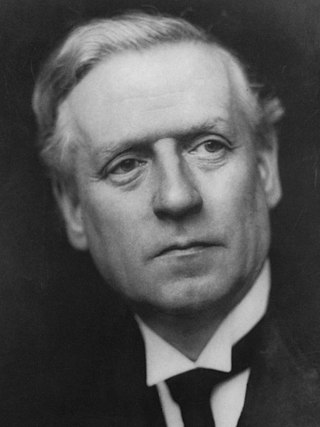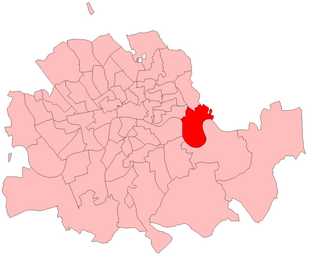Related Research Articles

The January 1910 United Kingdom general election was held from 15 January to 10 February 1910. The government called the election in the midst of a constitutional crisis caused by the rejection of the People's Budget by the Conservative-dominated House of Lords, in order to get a mandate to pass the budget.

The 1912 Saskatchewan general election was held on July 11, 1912 to elect members of the Legislative Assembly of Saskatchewan. Premier Walter Scott led the Liberal Party of Saskatchewan to a third term in office with a significant increase in the share of the popular vote. The opposition, now renamed from the Provincial Rights Party to the Conservative Party of Saskatchewan and led by Wellington Bartley Willoughby, lost both votes and seats in the legislature.

The 1913 Alberta general election was held in March 1913. The writ was dropped on 25 March 1913 and election day was held 17 April 1913 to elect 56 members to the 3rd Alberta Legislature. Elections in two northern districts took place on 30 July 1913 to compensate for the remote location of the riding. The method to elect members was under the First Past the Post voting system with the exception of the Edmonton district which returned two members under a plurality block vote. The election was unusual with the writ period for the general election being a very short period of 23 days.
The 1913 Newmarket by-election was a parliamentary by-election held on 16 May 1913 to fill a vacancy in the United Kingdom House of Commons for the Eastern or Newmarket Division of Cambridgeshire.
Centre Calgary was a provincial electoral district in Calgary, Alberta, Canada, mandated to return a single member to the Legislative Assembly of Alberta using the first past the post method of voting from 1913 to 1921.
The 1916 Sheffield Hallam by-election was a parliamentary by-election held for the British House of Commons constituency of Sheffield Hallam in the West Riding of Yorkshire on 23 December 1916.
The 1913 Shrewsbury by-election was a Parliamentary by-election held on 22 April 1913. The constituency returned one Member of Parliament (MP) to the House of Commons of the United Kingdom, elected by the first past the post voting system.

The 1914 Poplar by-election was a Parliamentary by-election held on 19 February 1914. The constituency returned one Member of Parliament (MP) to the House of Commons of the United Kingdom, elected by the first past the post voting system.

The 1913 Wandsworth by-election was a Parliamentary by-election held on 12 June 1913. The constituency returned one Member of Parliament (MP) to the House of Commons of the United Kingdom, elected by the first past the post voting system.
The 1913 Kendal by-election was a Parliamentary by-election held on 18 March 1913. The constituency returned one Member of Parliament (MP) to the House of Commons of the United Kingdom, elected by the first past the post voting system.
The 1913 Chorley by-election was a Parliamentary by-election held on 19 February 1913. It returned one Member of Parliament (MP) to the House of Commons of the United Kingdom, elected by the first past the post voting system. Although it was a safe Unionist seat which was held, the reduction in the Unionist majority was notable.
The 1913 Flint Boroughs by-election was a Parliamentary by-election held on 21 January 1913. The constituency returned one Member of Parliament (MP) to the House of Commons of the United Kingdom, elected by the first past the post voting system.
The 1913 Dover by-election was held on 23 June 1913. The by-election was held due to the death of the incumbent Conservative MP, George Wyndham. It was won by the Conservative candidate Vere Ponsonby, who was unopposed. Ponsonby would later become ninth Earl of Bessborough.
Elections to Liverpool City Council were held on Wednesday 1 November 1922.
Elections to Liverpool City Council were held on 1 November 1921.
Elections to Liverpool City Council were held on 1 November 1913.
Elections to Liverpool City Council were held on Friday 1 November 1912.
Elections to Liverpool City Council were due to be held on 2 November 1914.
Because the First World War was still underway at the date of the election, under the terms of the Parliament and Local Elections Act, 1918, the term of office of the members of the Council were extended by one year.
References
- ↑ Leigh Rayment's Historical List of MPs
- 1 2 Craig, F. W. S. (18 June 1974). British Parliamentary Election Results: 1885–1918. London: Macmillan Publishers. p. 40. ISBN 978-1-349-02298-4.